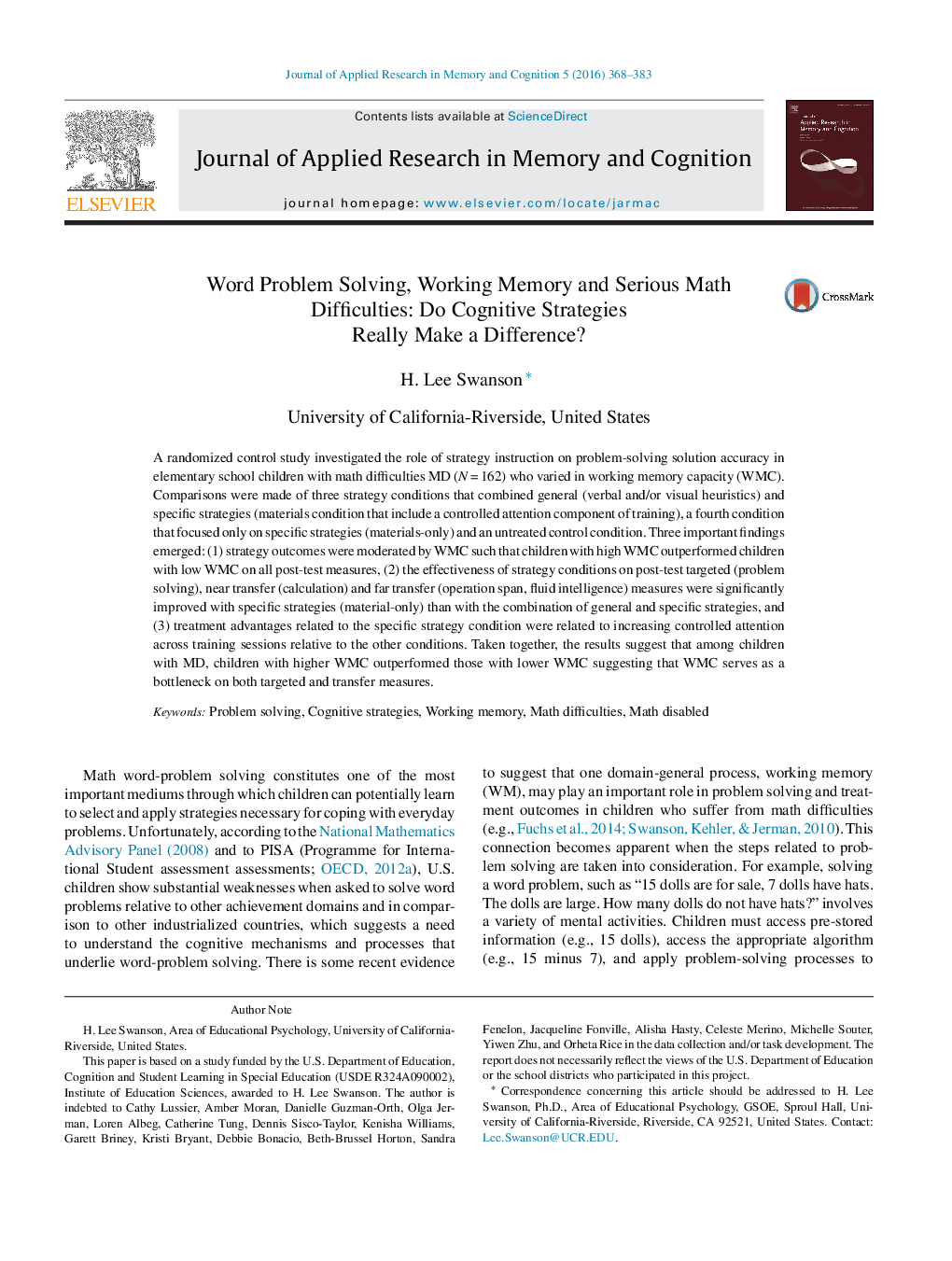| Article ID | Journal | Published Year | Pages | File Type |
|---|---|---|---|---|
| 5034064 | Journal of Applied Research in Memory and Cognition | 2016 | 16 Pages |
A randomized control study investigated the role of strategy instruction on problem-solving solution accuracy in elementary school children with math difficulties MD (NÂ =Â 162) who varied in working memory capacity (WMC). Comparisons were made of three strategy conditions that combined general (verbal and/or visual heuristics) and specific strategies (materials condition that include a controlled attention component of training), a fourth condition that focused only on specific strategies (materials-only) and an untreated control condition. Three important findings emerged: (1) strategy outcomes were moderated by WMC such that children with high WMC outperformed children with low WMC on all post-test measures, (2) the effectiveness of strategy conditions on post-test targeted (problem solving), near transfer (calculation) and far transfer (operation span, fluid intelligence) measures were significantly improved with specific strategies (material-only) than with the combination of general and specific strategies, and (3) treatment advantages related to the specific strategy condition were related to increasing controlled attention across training sessions relative to the other conditions. Taken together, the results suggest that among children with MD, children with higher WMC outperformed those with lower WMC suggesting that WMC serves as a bottleneck on both targeted and transfer measures.
